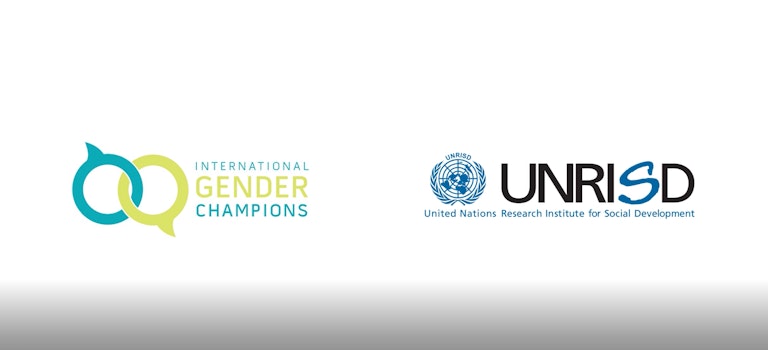At this webinar, distinguished panellists debated the case for a new global norm on violence against women. They reviewed existing legal frameworks, treaties and instruments; considered lessons learned from successful interventions; and discussed priorities for policy change to end this human rights crisis.
The webinar was hosted by the International Gender Champions and UNRISD as part of the 16 Days of Activism against Gender-Based Violence, and the roll-out of the IGC Gender-based Violence Pledge.
One in three women has been subjected to violence across the world, according to WHO figures. In just the last few years there have been high profile and tragic examples in countries across all regions – notwithstanding the energy and activism of the MeToo movement and, prior to that, the tireless work of campaigners over many decades.
Violence often takes place in the home, but it is also present in the broader society, in villages, towns and cities, driven and underpinned by deep seated economic, political and cultural factors. This is where the root causes of violence need to be addressed, through national legislation, through access to justice, and through education.
At the same time, international support and solidarity can make a big difference, and UN treaties are part of this. We have had success with CEDAW and in other areas, including the convention for the rights of people living with disabilities. Global norms are an important part of the solution, inspiring legal instruments. It is in this vein that many groups are campaigning for a new treaty specifically on violence against women, that would complement CEDAW.
We will all agree with the end goal of ending violence against women. In working towards this goal, what technical, political and tactical elements might we need to consider, and what questions might we need to ask?
- What does CEDAW currently contribute, and is there a gap?
- What commitments are needed at the national level to make CEDAW implementation real?
- What role exists for regional frameworks?
- Would it be difficult, or possibly even a backward step, to negotiate a new treaty, given the rise of political forces in some countries that deny women's rights, gender equality, and even the concept of gender itself?
UNRISD and the International Gender Champions joined forces to convene a discussion among advocates for a new treaty, and people who have worked with and on CEDAW for many years. The event was an opportunity to hear their different perspectives; a space for legal experts, gender advocates and grassroots organizations to engage in lively and informed debate around these questions.
View the video here.
